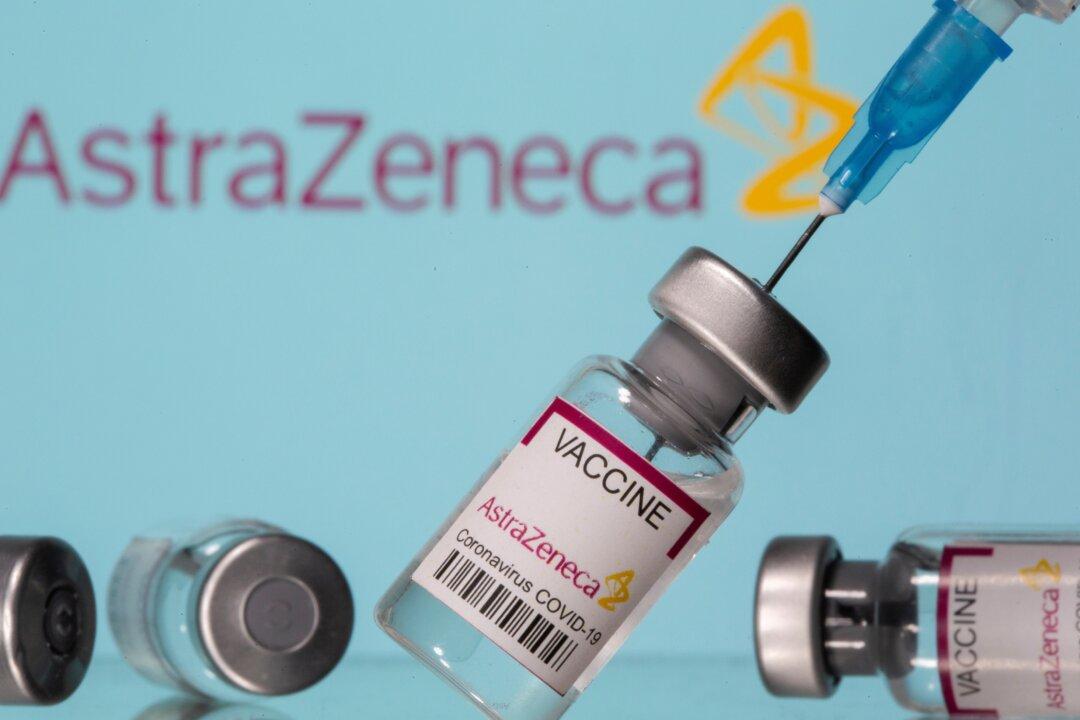AstraZeneca released an updated estimate on March 24 that showed a slight dip in the efficacy of its COVID-19 vaccine, days after U.S. officials accused the company of using “outdated information” in a prior report.
The Data Safety Monitoring Board (DSMB), which monitors trials and reviews data collected at regular intervals, had criticized the British drugmaker for not using the most up-to-date information in its interim analysis on March 22, which said its COVID-19 vaccine was 79 percent effective.





